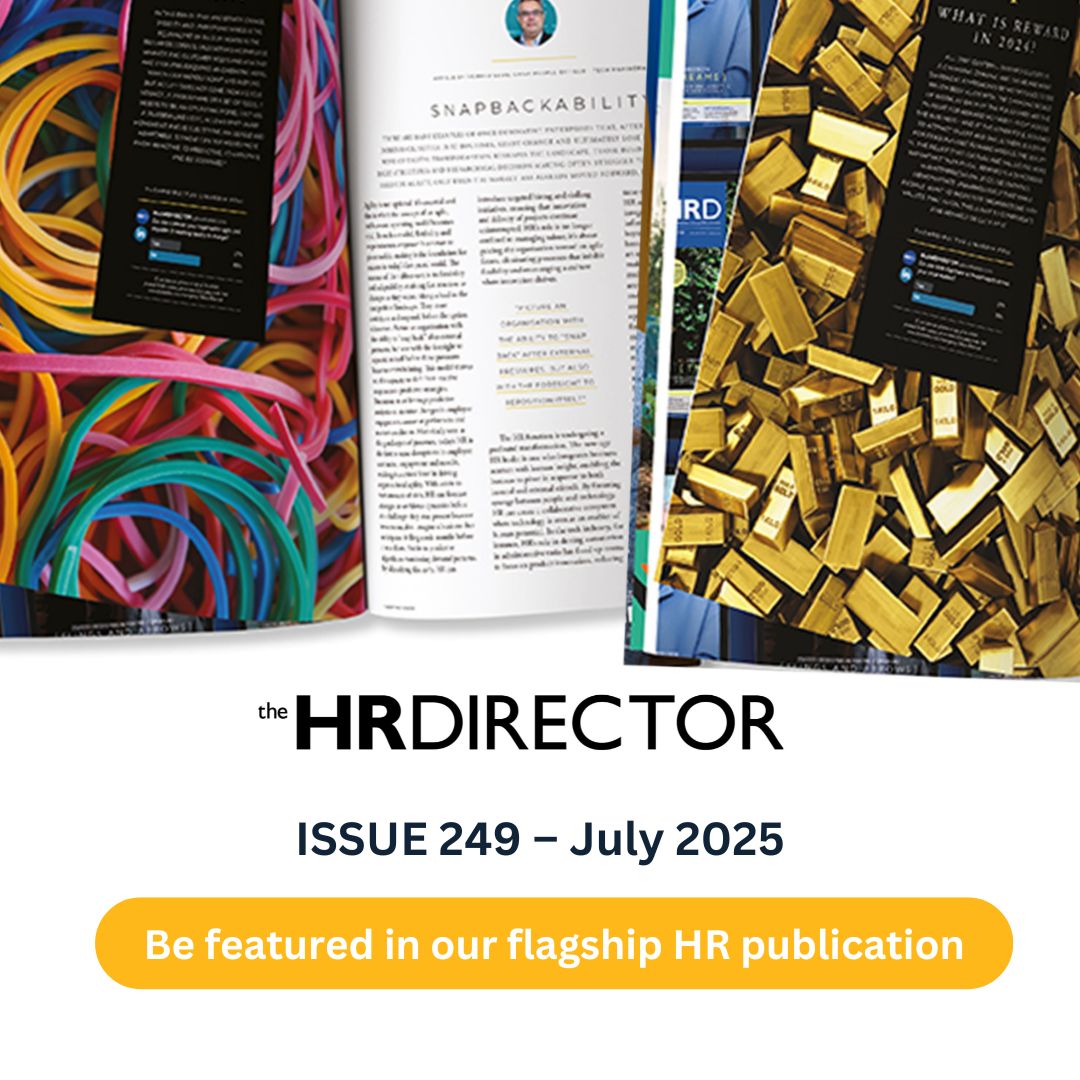TheHRDIRECTOR – Latest Synopsis
Submit Your Tenders via Our Online Portal – Deadline: 8th April 2025
Independence is our strength. We focus on the issues that matter most to HR leaders.
ISSUE 249 – Synopsis – July 2025
Mental Health & Psychological Safety
In light of the shifting landscape around Diversity, Equity, and Inclusion (DEI), we explore the pressing need for proactive strategies to foster workplace environments that prioritize mental and psychological safety. As attitudes around DEI evolve, the impact on vulnerable and marginalized groups raises serious concerns. This issue addresses the following questions:
-
How can organizations cultivate a workplace culture that supports mental and psychological safety?
-
What can managers do to identify and address early signs of stress, burnout, or mental health challenges, while maintaining confidentiality?
-
What role does leadership training play in promoting psychological safety, and how can HR ensure leaders at all levels are equipped to support employee well-being?
Mental health and psychological safety are key drivers of employee engagement, performance, and organizational success. Employees who feel supported are more likely to contribute to growth and stay engaged in their roles. Conversely, neglecting these areas leads to stress, burnout, and decreased productivity. Key stressors include unrealistic expectations, poor work-life balance, and toxic company cultures, all of which can undermine employee well-being. Leaders should create an inclusive, supportive environment where mistakes are viewed as opportunities for learning, not failure.
Reskilling & Upskilling for Future Competitiveness
As technology and market demands rapidly evolve, reskilling and upskilling are essential to maintaining a competitive edge. This issue explores how to:
-
Identify and address skill gaps within your workforce.
-
Develop reskilling and upskilling programs that align with organizational goals.
-
Encourage a culture of continuous learning, supported by mentorship and peer learning.
With digital transformation, AI, and automation reshaping industries, businesses must ensure their workforce is adaptable. Reskilling helps employees transition into new roles, while upskilling ensures their current skillsets stay relevant. These initiatives must be ongoing to keep pace with change, starting with a comprehensive skills gap assessment.
Employee Engagement in a Hybrid World
Five years after the pandemic, many employers are still navigating the complexities of employee engagement in hybrid and remote work environments. In this issue, we address how HR leaders can:
-
Leverage technology and flexible work arrangements to enhance engagement.
-
Ensure employees feel valued, included, and motivated, even with increased digital communication.
-
Align employee engagement with company values, especially in a remote-first culture.
The shift to remote and hybrid work has redefined employee engagement, emphasizing emotional connection rather than traditional metrics like in-office attendance. Successful engagement in this new environment relies on trust, autonomy, and flexibility. As employees demand greater work-life balance and empowerment, organizations must create inclusive environments that foster collaboration, communication, and a strong sense of belonging.
Navigating Demographic Shifts in the Workforce
As the workforce becomes more diverse and multi-generational, HR leaders face new challenges and opportunities. This issue explores how to:
-
Adapt recruitment and retention strategies for a multi-generational workforce.
-
Create an inclusive culture that embraces the diverse perspectives of different generations.
-
Use demographic data to inform workforce planning, ensuring alignment with the evolving needs of the workforce.
With baby boomers retiring and younger generations entering the workforce, HR leaders must address varying expectations. Baby boomers may prioritize stability, while millennials and Gen Z value flexibility, career growth, and work-life balance. Intergenerational collaboration, mentorship, and cross-generational teams can unlock creativity and improve problem-solving. HR’s role in bridging the skills gap and fostering an inclusive environment is crucial to future success.
Contribute Your Insights
We welcome your expert knowledge and ideas for potential articles that address the challenges and opportunities HR leaders will face in 2025. Submit your article through our Editorial Portal.
If you’d like to be added to our Monthly Synopsis Mailing List, click below:







